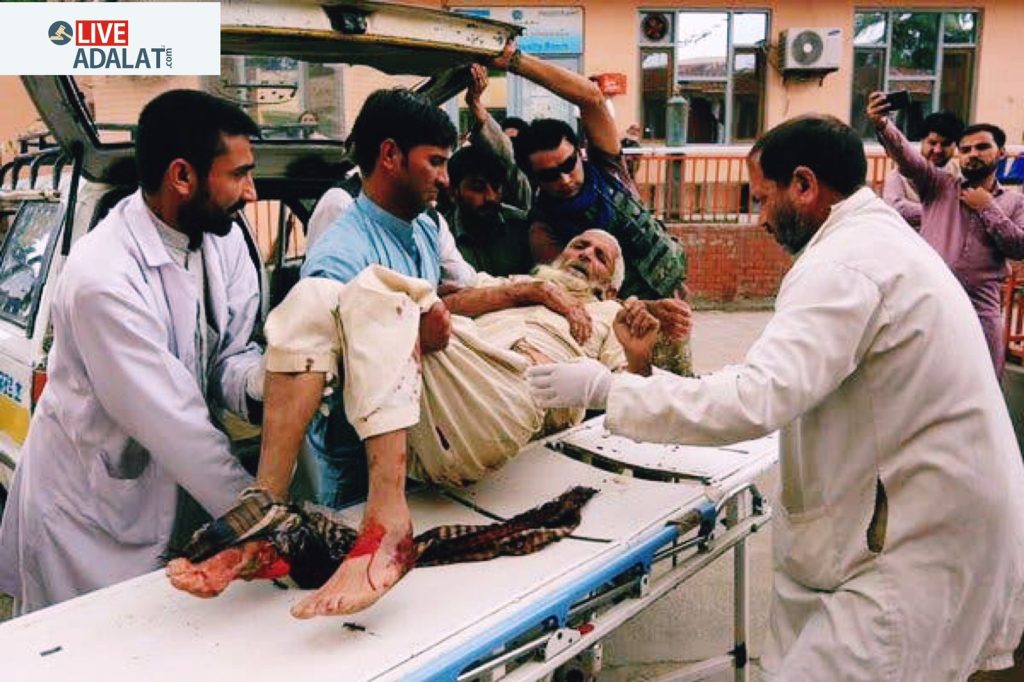More than 100 people were killed and over 140 people were wounded in a bomb attack on a mosque in Northern Afghanistan on Friday. The attack challenged the Taliban as they transitioned from insurgency to governance.
The ISIS claimed the attack, an Islamic state suicide bomber struck at a mosque filled with Shiite Muslim worshippers. The bomber was identified as a Uyghur Muslim, he was a member of China’s mainly Muslim Uyghur minority, the attack was done to target both the Shiites and the Talibans for expelling Uyghur Muslims.
The Windows were blown off, the ceilings were charred and the debris were scattered. People carried the bodies on stretchers and in blankets.
Sayed Hussain Alimi Balkhi, a local resident demanded security for the Shiites of Afghanistan.
“We expect the security forces of the government to provide security for the mosques since they collected the weapons that were provided for the security of the worship places.”
The deputy chief of police, Dost Mohammad Obaida ensured that security is provided to the Shiites of Afghanistan.
“I assure our Shiite brothers that the Talibans are prepared to ensure their safety.”
He further said, that the attack happened to spread hatred among the Shia and Sunni Muslims of Afghanistan. He also ensured that there is no dispute between the movement and the minority.

The United States has also condemned the suicide bomber attack that happened in a mosque full of Shiite devotees in Afghanistan.
“Obviously, any loss is an enormous tragedy, our heart goes out to the families who lost loved ones. We, of course will continue to work in partnership with leaders in the region to work to get partners who stood by our side out of Afghanistan, who want to depart. That’s something that there’s ongoing work on, as we speak.”
Ms Jen Psaki, the White House Press Secretary.
The attack happened after the killing of 13 Hazaras,a minority community, including a 17 year of girl in Daykundi province by the Talibans as per a report by Amnesty International which mentioned that the “Talibans unlawfully killed the Hazaras”. The Islamic groups who are the bitter rivals of the Taliban has repeatedly attacked Shiites many times before.
Michael Kugelman, an expert at the Woodrow Wilson International Centre for Scholars said that Taliban would face many problems if they fail to tackle terrorism and economic crisis.
“If the Taliban, as is likely, is unable to address these concerns, it will struggle to gain domestic legitimacy, and we could see the emergence of a new armed resistance,” said Kugelman.
